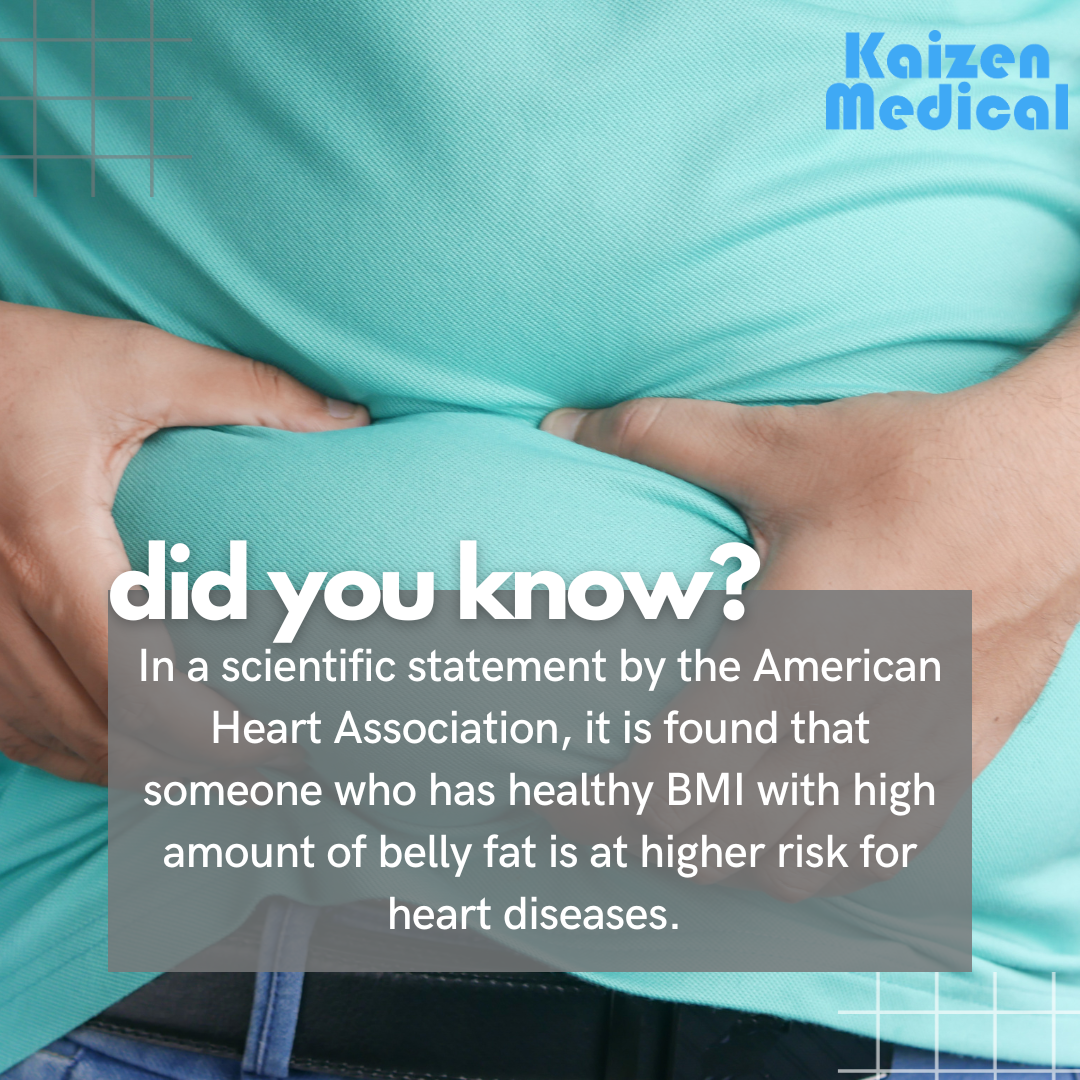Normal blood sugar readings can feel reassuring, yet many people continue to experience unexplained weight gain despite these results. This puzzling situation affects countless individuals who assume their metabolism is functioning properly based on standard glucose tests alone.
This article explores how metabolic, hormonal, and lifestyle factors can affect weight, beyond what standard sugar tests reveal.
Early Insulin Resistance Can Go Undetected
Even if your blood sugar tests come back normal, your body may still be dealing with a condition called insulin resistance. This means your cells aren’t responding to insulin as efficiently as they should.
Elevated insulin levels: Your pancreas produces more insulin to maintain normal blood sugar, but this excess insulin promotes fat storage, particularly around the midsection.
Post-meal glucose spikes: Blood sugar may rise significantly after eating, even if fasting levels appear normal, triggering insulin surges that encourage weight gain.
Reduced insulin sensitivity: Cells become less responsive to insulin over time, requiring higher levels to process glucose and inadvertently promoting fat accumulation.
Hormonal Imbalances That Affect Weight
Several hormones besides insulin play important roles in regulating your weight. If they’re out of balance, you might experience weight gain even if your blood sugar is perfectly normal.
Thyroid dysfunction: An underactive thyroid (hypothyroidism) slows your metabolism, making it easier to gain weight even with a healthy diet.
Cortisol elevation: Chronic stress increases your cortisol levels. This “stress hormone” can lead to increased appetite, food cravings (especially for sugar), and belly fat.
Oestrogen fluctuations: Hormonal shifts during perimenopause, menopause, or andropause can reduce metabolic rate and increase fat storage.
Leptin resistance: Leptin is the hormone that signals fullness to your brain. If you develop resistance to it, your brain doesn’t get the message that you’re full, which may lead to overeating.
Changes in Metabolism That Aren’t Sugar-Related
Your metabolism, which is the rate at which your body burns calories, naturally shifts due to various factors unrelated to blood sugar control, affecting how efficiently your body burns calories throughout the day.
Age-related muscle loss: After age 30, muscle mass naturally declines, and since muscle burns more calories than fat, your metabolism slows.
Adaptive thermogenesis: Your body may lower its metabolic rate in response to calorie restriction or weight loss, making further weight loss increasingly difficult.
Medication side effects: Common medications including antidepressants, antihistamines, and blood pressure treatments can slow metabolism or increase appetite.
Lifestyle Factors Affecting Weight
Daily habits and environmental factors can also lead to gradual weight gain, even when blood sugar remains in the normal range.
Sleep deprivation: Poor sleep disrupts hormones that regulate hunger and satiety, increasing cravings for high-calorie foods and promoting weight gain.
Chronic inflammation: Caused by factors like poor diet or unmanaged stress, inflammation can interfere with how your body processes nutrients and stores fat.
Sedentary behaviour: Long hours of sitting reduce your body’s ability to use energy efficiently, which can affect how you burn fat and glucose after meals.
Portion size increases: Gradual increases in portion sizes over time can lead to weight gain despite maintaining stable blood sugar levels.
When to Consider Personalised Health Checks
If you’re experiencing weight gain despite normal blood sugar levels, a personalised health screening can offer deeper insights into your overall health. These assessments go beyond routine blood tests to explore a full range of potential underlying causes.
Comprehensive Medical Review
- Evaluates your full health history, family risk factors, and existing medical conditions
- Helps identify patterns or overlooked issues that may contribute to metabolic changes
Lifestyle and Risk Assessment
- Considers factors such as sleep, stress, physical activity, and diet
- Builds a holistic picture of how daily habits may affect weight and hormonal balance
Advanced Laboratory Testing
- Includes in-depth blood work for insulin, thyroid hormones, inflammatory markers, and lipid levels
- Detects early signs of metabolic dysfunction that routine tests may miss
Specialised Hormonal Panels
- Assesses hormone levels such as cortisol, oestrogen, testosterone, and leptin
- Useful for identifying imbalances related to energy levels, mood, appetite, and fat storage
Body Composition and Metabolic Analysis
- Measures muscle mass, fat distribution, and metabolic rate
- Provides a more accurate picture than weight alone, offering clues about how your body processes energy
Tailored Health Recommendations
- Combines all findings into an individualised plan for prevention, lifestyle adjustments, and further care if needed
- Supports early intervention and long-term metabolic health
Conclusion
Unexplained weight gain can result from a complex mix of metabolic, hormonal, and lifestyle factors, many of which aren’t reflected in standard glucose tests. If you’ve noticed these signs or simply want a comprehensive health review, consider scheduling a consultation with an internal medicine and hypertension specialist in Singapore. Early detection and tailored care can help you stay ahead of potential health issues and improve your long-term wellbeing.




